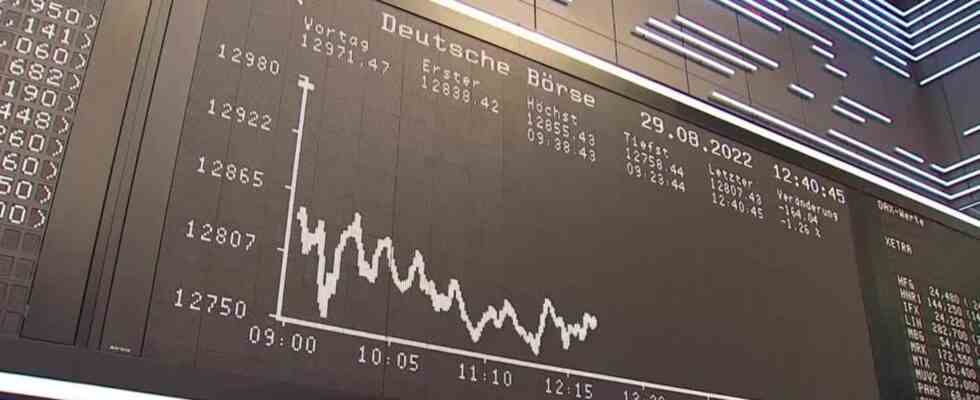STORY: The prospect of a long-term restrictive monetary policy by the major central banks is once again affecting the mood of European investors. Dax and EuroStoxx50 each fell about 1.5 percent on Monday to 12,797 and 3548 points, respectively. Investors had to nibble on the statements made by US Federal Reserve Chairman Jerome Powell. This got the financial markets in the mood for a long series of drastic interest rate hikes. “The fear of interest rates has the markets firmly in its grip after the statements by the US Federal Reserve Board in Jackson Hole, the central bank meetings to continue fighting inflation, people have already caved in a bit. But you have to read between the lines: I think the US Federal Reserve will raise interest rates very quickly and quickly. And those who raise interest rates quickly and go through with them quickly then have the idea of interest rate cuts again and that will start at the end of the year,” says Robert Halver, head of capital market analysis at Baader Bank. After the most recent record hunt, energy prices eased slightly. The European natural gas future fell around nine percent to 279.50 euros per megawatt hour after hitting a record value of 343.08 euros last week. Stockbrokers continued to fear that Russian deliveries via the important Nord Stream 1 Baltic Sea pipeline could not be resumed after the end of the announced maintenance work. “One thing is the action. A Russian government that can dictate the gas price by opening and closing politics. The other is the reaction of politicians and of course it has to be really clever. A gas levy is far too complicated and solves the problem but not at all, if the consumers then have less in their pockets because they have to pay the gas levy, that doesn’t help them. who have problems, but don’t say gas levy and later redistribute the money. That’s far too complicated. We need a quick solution now. And you have to say this: I don’t know how we can cover the base load in winter without massive use of coal and want to provide atomic energy.” It was only on Monday that the federal government made it clear that the gas levy is not up for negotiation. The surcharge is to be collected from gas consumers from October. This alone means that an average household of four will have to pay around 480 euros more per year without VAT.

